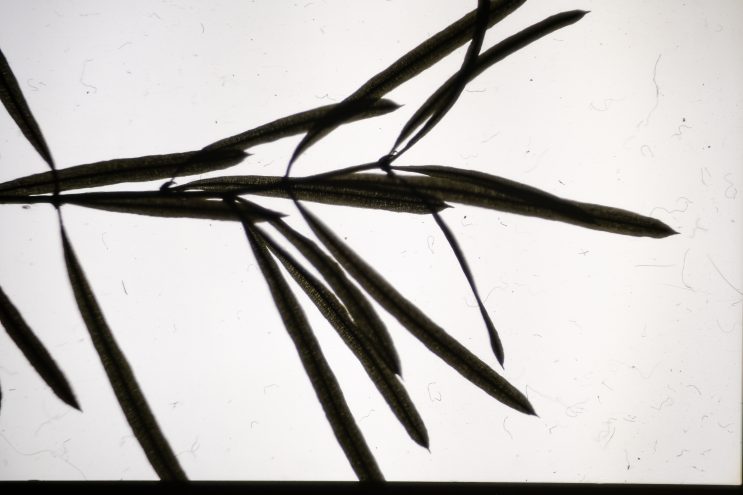
Photo: “A sequence from the Garden on (not) Forgetting: Traces”, archival print, 1/1000, 2020
Online Lecture: The Garden of (not) Forgetting: The Memory of a Place and the Topography of Destruction (in English language)
Thursday, 5 November 2020, 7 pm
Dilşad Aladağ and Eda Aslan
The project The Garden of (not) Forgetting focuses on the planned displacement of the Istanbul University Institute of Botany and the Alfred Heilbronn Botanical Garden, which were founded in 1936 by the Jewish-German scientists Alfred Heilbronn and Leo Brauner during their exile in Turkey. Both buildings and the land they occupy were transferred to the Turkish Directorate of Religious Affairs in 2015. Once the institution was forced to vacate of the land in 2018, the demolition of the institute commenced. The Botanical Garden has been closed to visitors since that date. Regarding the potential threat of destruction, the project, which began at first with a focus on plants in 2017, has turned into a collective struggle in which the archives and history of the Botanic Gardens have become central to addressing the question: “Is it possible to ‘transcribe’ a place and keep it alive in memories?”
Dilşad Aladağ is an architect and researcher from Turkey. She is currently pursuing her graduate study in European Urban Studies at the Bauhaus University of Weimar as a DAAD scholar. She has worked in several architecture offices, been part of exhibition and film projects, and co-founded an urban collective called Plankton Project. The project The Garden of (not) Forgetting, which she has been working on with Eda Aslan since 2017, received several research and production funds. Her main focus areas are the disruptive potential of architecture, and emerging urban heritage conflicts in Europe, and especially in Turkey.
Eda Aslan (*1993, Istanbul) studied at the sculpture and painting Department at Marmara University’s Fine Arts Faculty, Istanbul. Currently, she lives and works in Istanbul. Aslan’s production focuses on history, space, and memory. Her modes of production are driven by her interest in documenting formats. Aslan’s works have been shown in numerous exhibitions, including in the Evliyagil Museum, Ankara (2020), Zilberman Gallery, Istanbul (2019), Evliyagil Dolapdere, Istanbul (2019), Krank Art Gallery, Istanbul (2019), the 4th Mardin Biennial, Mardin (2018), and Kasa Galeri, Istanbul (2017).
This is a contribution of Kunsthaus Hamburg to “DIE VIELEN”.
Kindly supported by der Beauftragten der Bundesregierung für Kultur und Medien

